Publications
Articles, publications, books, tools and multimedia features from the U.S. Institute of Peace provide the latest news, analysis, research findings, practitioner guides and reports, all related to the conflict zones and issues that are at the center of the Institute’s work to prevent and reduce violent conflict.
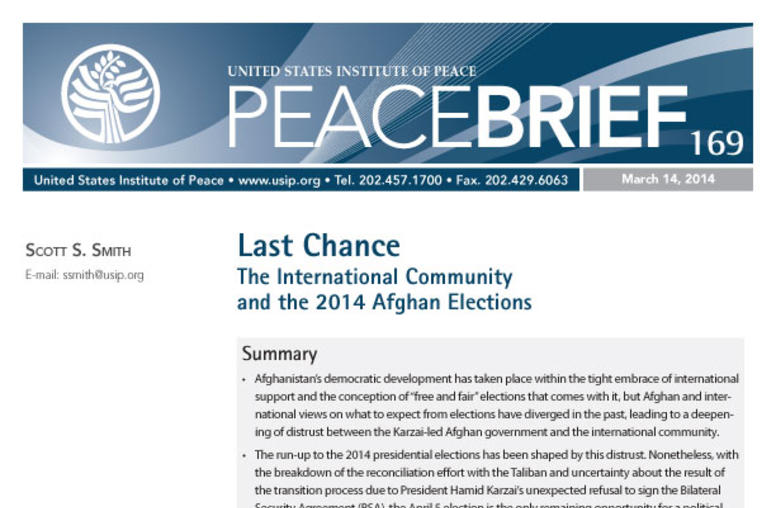
Last Chance: The International Community and the 2014 Afghan Elections
Afghanistan's April 5 election could create space for political elites to address root causes of the country's continuing crisis, despite the past divergence between Afghan and international views on what elections can accomplish. With more realistic expectations, informed in part by a better understanding of the 2009 elections, the Afghans may be more determined to take this possibly final opportunity to rescue themselves from a political implosion.
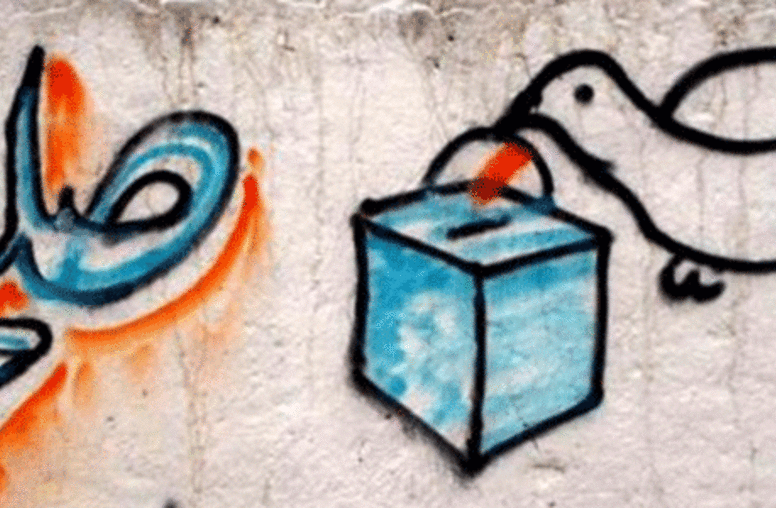
USIP & Afghanistan’s Political Transition
Since 2011, USIP has advocated that Afghanistan’s political transition, and the presidential election in particular, will be the most crucial factor in determining the country’s stability post-2014. USIP has conducted research, facilitated discussions, and raised awareness of this issue through publications, projects on the ground, events, and briefings for government officials on the importance of and need to support the political transition. Learn more on USIP’s Support for a Successful Afg...
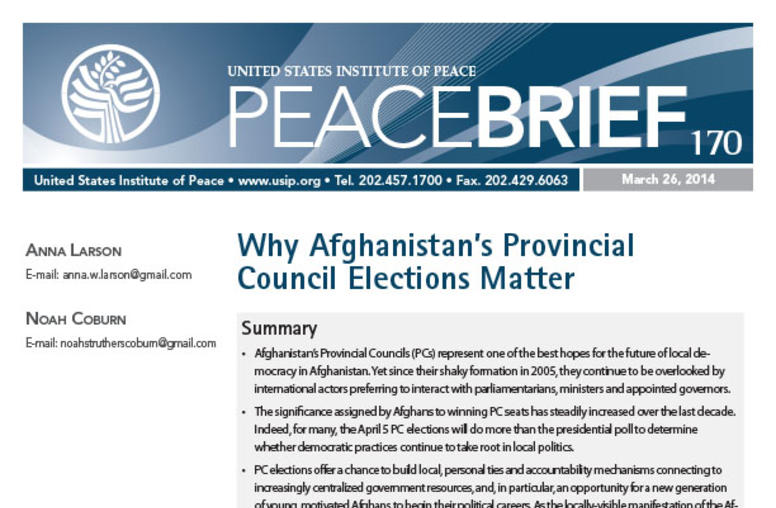
Why Afghanistan’s Provincial Council Elections Matter
With elections scheduled for April 5, Afghanistan’s Provincial Councils offer one of the best hopes for the future of local democracy in the country. The significance of Provincial Councils, including creating an opportunity for a new generation of young Afghans to begin political careers, has often been overlooked but has steadily increased.
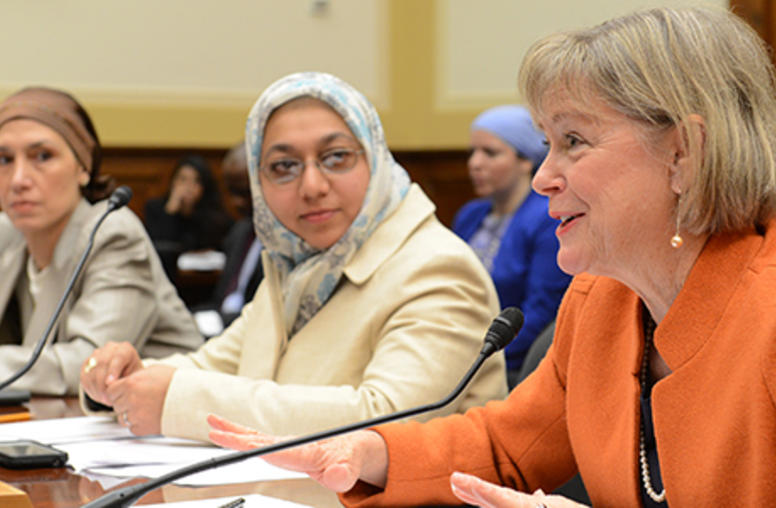
Engaging and Educating Women and Girls in the Prevention of Violent Conflict and Violent Extremism
Dr. Kathleen Kuehnast, director of the Center for Gender and Peacebuilding at the U.S. Institute of Peace, testified on the importance of engaging and educating women and girls in conflict zones in order to prevent and mitigate violent conflict and violent extremism.
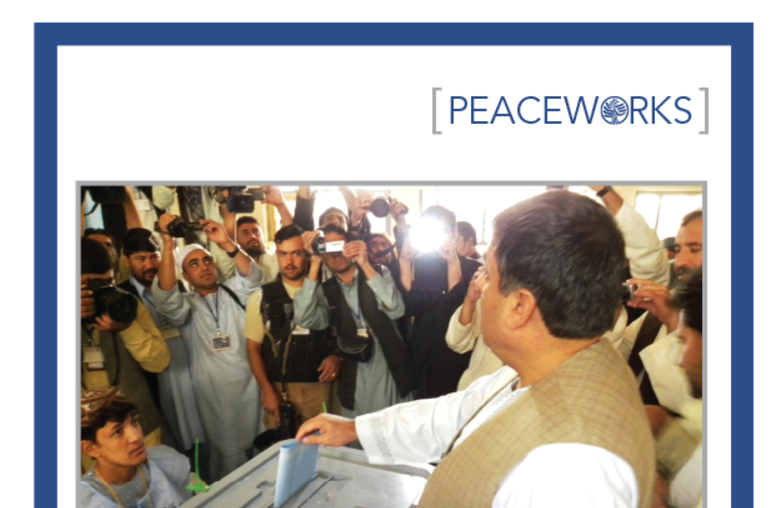
The Taliban and the 2014 Elections in Afghanistan
The international community and Afghan political leaders alike see the 2014 Afghan national elections as crucial for the continuation of political stability in Afghanistan and for the success of the past decade’s statebuilding effort there. A major factor in determining the success or failure of these elections will be how the Taliban approach them, now that it is clear that the insurgent group has not been brought to the edge of defeat by the 2010 –11 surge in the south.
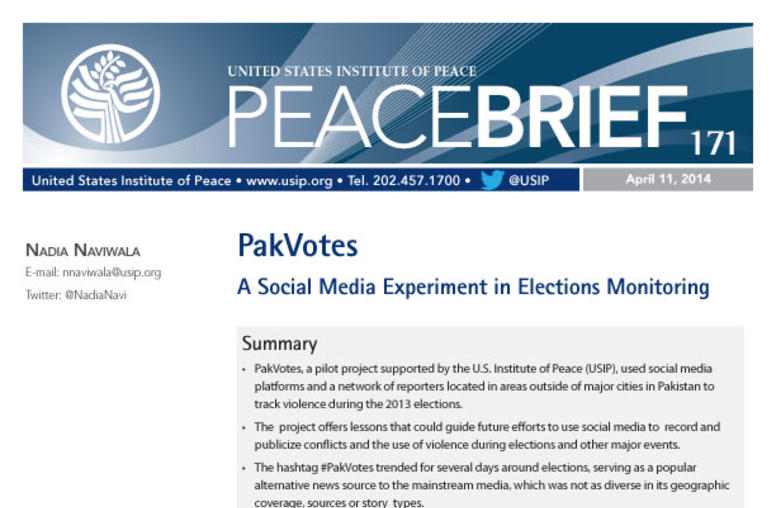
PakVotes: A Social Media Experiment in Elections Monitoring
PakVotes, an experimental project run by a Pakistani NGO and supported by USIP, brought social media platforms together with a network of reporters to track violence during Pakistan’s 2013 elections. The experience offers lessons for the future use of social media to publicize conflicts and violence during elections and other major events.
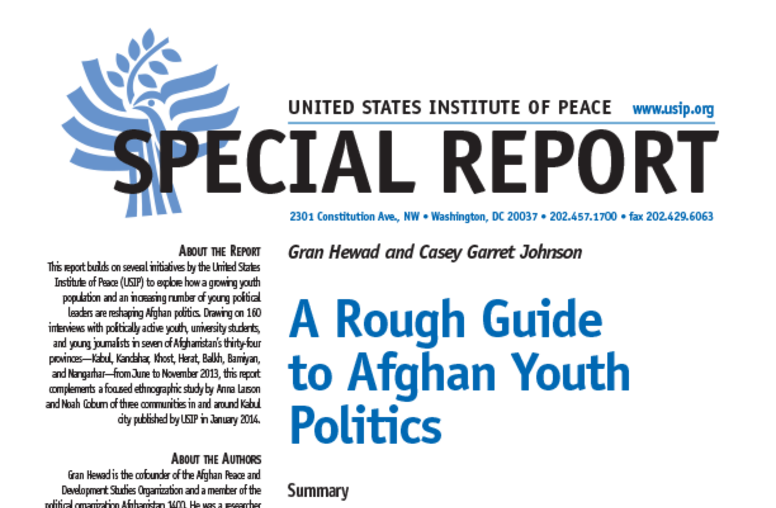
A Rough Guide to Afghan Youth Politics
Afghan politics today are shifting in response to a growing youth population and an increasing number of young political leaders. Youth are critical to the future of the country, and what they think of the transition period since 2001 matters. Understanding their goals; how they network, organize, and mobilize; and their aspirations for the April 2014 presidential and provincial council elections reveal how they are looking to reshape the political culture. And perhaps the most significant si...
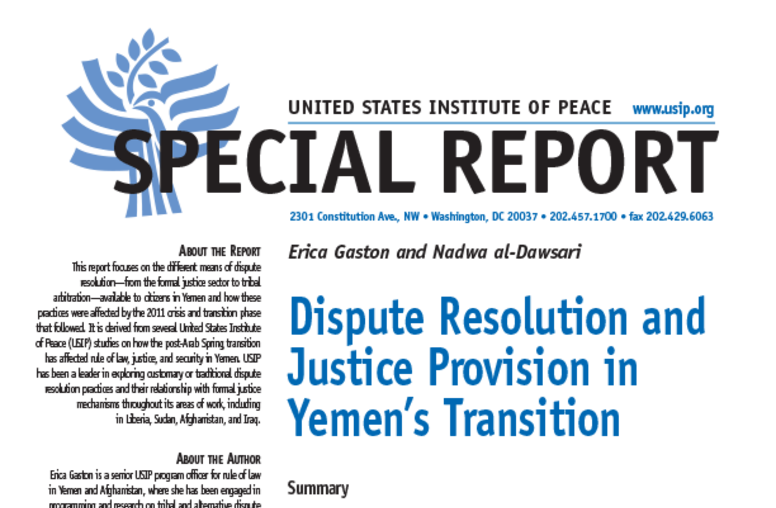
Dispute Resolution and Justice Provision in Yemen’s Transition
Alternative dispute resolutions has long played an important role in Yemen. Since the Arab Spring protests and the transition that has followed, a growing number of Yemenis have utilized tribal and nontribal dispute resolution outside of the formal justice system due to fractures in state control and weakened state institutions. Because of this political instability, the tribal system has since weakened and new actors have emerged, causing the authority of both formal and informal actors to b...
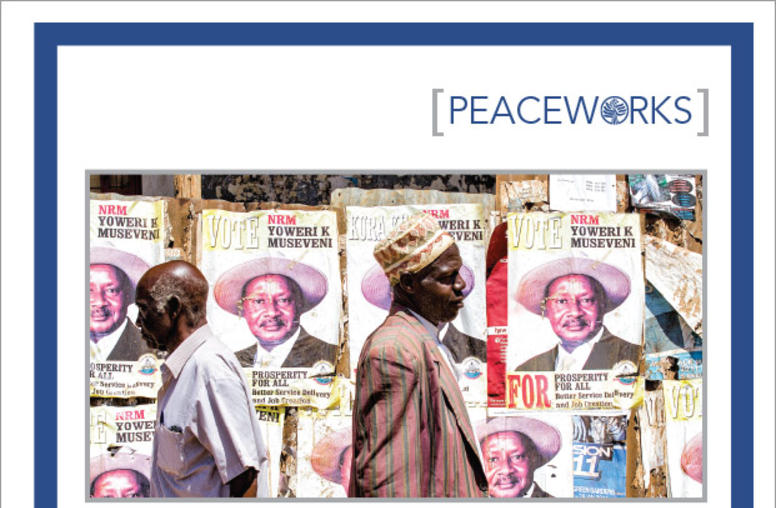
Weak Ugandan Democracy, Strong Regional Influence
Ugandan President Yoweri Museveni’s reputation is weakened by his unwillingness to leave office: he was elected for a fifth term of office in February 2016 in an election that drew international criticism. This report, a joint publication of USIP and the Institute for Security Studies, explores key elements of Uganda’s domestic politics and foreign policy as well as the impact they have in the region and internationally.
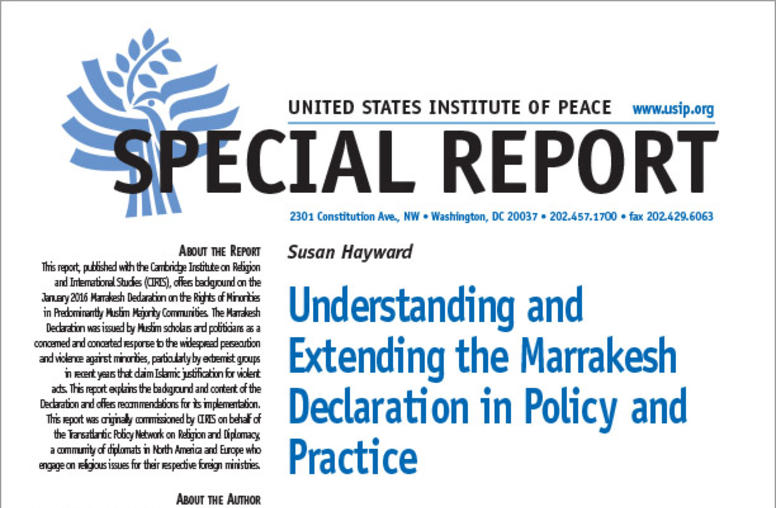
Understanding and Extending the Marrakesh Declaration in Policy and Practice
In January 2016, the Marrakesh Declaration was issued by Muslim scholars and politicians as a concerted response to the persecution of and violence against minorities in Muslin-majority countries. This report, published with the Cambridge Institute on Religion and International Studies, provides background on the Marrakesh Declaration and recommendations to those from both Muslim and non-Muslim majority contexts to ensure the Declaration’s implementation and legitimacy.